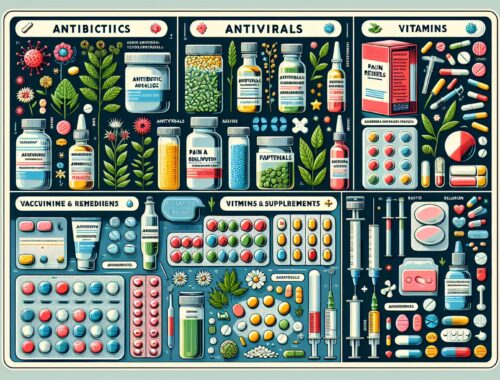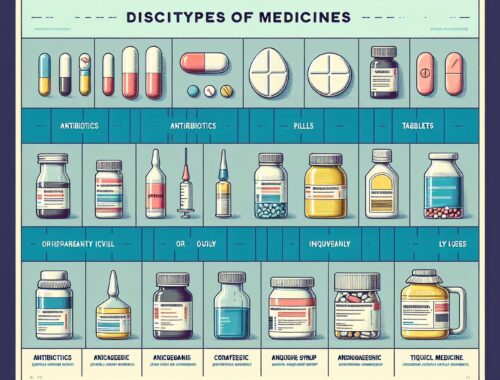
Understanding the Different Types of Medicines
Medicines play a crucial role in treating various illnesses and improving our overall well-being. They are designed to alleviate symptoms, combat infections, and even prevent certain diseases. However, navigating the world of pharmaceuticals can be overwhelming, especially when faced with countless options. To help you make informed decisions, this article will shed light on the different types of medicines and their specific uses.
Introduction
Medicines can be broadly classified into several categories, each serving a distinct purpose. Understanding their unique properties and applications is vital for both patients and healthcare professionals. Let’s explore these categories in detail.
1. Over-the-Counter Medications
Over-the-counter (OTC) medications are readily accessible without a prescription. They are intended to treat mild symptoms, such as headaches, colds, and allergies. Common examples include pain relievers like acetaminophen or ibuprofen, cough syrups, antihistamines, and topical creams. Although OTC medications are generally safe, it is essential to follow the recommended dosage and consult a healthcare professional if symptoms persist.
2. Prescription Medications
Prescription medications are stronger drugs that require a physician’s written approval. These medications are used to treat moderate to severe conditions and often target specific disorders. Examples include antibiotics to fight infections, anticonvulsants for epilepsy, or antidepressants for mental health disorders. Only a qualified healthcare provider can prescribe and closely monitor these medications due to their potential side effects and interactions with other drugs.
3. Dietary and Herbal Supplements
Dietary and herbal supplements are not classified as medications, yet they are commonly used for their potential health benefits. These products, ranging from vitamins and minerals to herbal extracts, are available without a prescription. However, caution must be exercised when using them, as they may interact with prescribed medications or have adverse effects if misused. Always consult a healthcare professional before adding any supplements to your routine.
4. Vaccines
Vaccines are preventive measures against specific diseases and infections. They stimulate the immune system to produce antibodies, providing immunity against future exposure. Vaccines have been instrumental in eradicating diseases like smallpox and significantly reducing the incidence of others, such as polio and measles. Common vaccines include those for influenza, hepatitis, measles, and tetanus. Consult your healthcare provider to ensure you are up to date with recommended vaccinations.
5. Prescription versus Generic Medications
Prescription medications often have generic counterparts. The primary difference lies in their manufacturing and cost. Generic medications contain the same active ingredients as their brand-name counterparts and must undergo rigorous testing to ensure they are safe and effective. Opting for generic medications can be more cost-effective without compromising their therapeutic benefits.
Conclusion
Navigating the diverse array of medications can be overwhelming, but understanding the different types is crucial. Over-the-counter medications provide symptom relief for minor ailments, while prescription drugs target specific conditions requiring professional oversight. Dietary supplements and vaccines serve additional preventive or health-enhancing purposes. Remember, it is always important to consult with your healthcare provider to ensure the most appropriate medication is chosen for your specific needs. By staying well-informed, you can make educated decisions about your health and well-being.
You May Also Like

Understanding the Different Types of Medicines
March 12, 2024
Understanding the Different Types of Medicines
January 16, 2024

